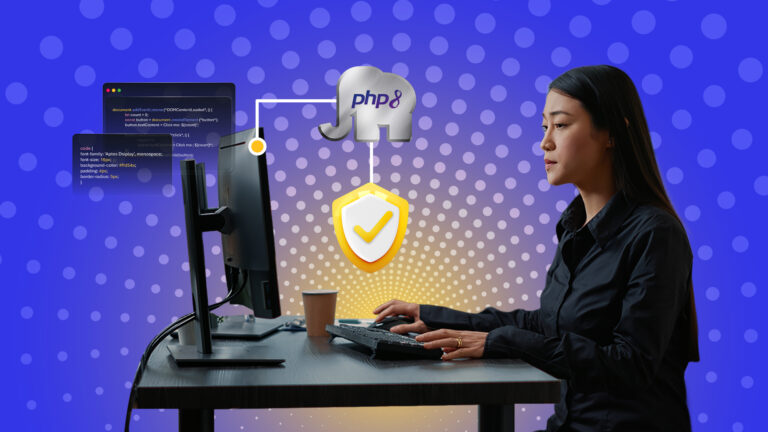Navigating the complexities of WordPress development can be daunting, with an array of plugins, themes, and coding intricacies to master. Yet, the platform’s versatility and robust capabilities make it a powerful tool for building exceptional websites. For C-Suite executives, understanding the strategic advantages and best practices of WordPress development is crucial to leveraging this platform effectively. Let’s explore the essentials and expert insights for mastering WordPress development.
What is WordPress Development?
WordPress development involves creating and managing websites using the WordPress platform. Renowned for its deep plugin ecosystem, extensive customization options, and user-friendly interface, WordPress is a formidable Content Management System (CMS) that powers over 40% of the web. Developers utilize WordPress to build websites ranging from simple blogs to complex eCommerce sites. Mastery of key concepts such as themes, plugins, and widgets is essential for effective WordPress development.
- Themes determine the visual design of a site.
- Plugins extend functionality by adding features like SEO tools and contact forms.
- Widgets are small blocks that perform specific functions, typically placed in designated areas of a website.
Expert WordPress developers combine technical prowess with creative design to build engaging and efficient websites. Continuous learning and staying updated with the latest WordPress plugin updates and best practices are crucial for maintaining high standards and securing top-tier WordPress development roles.
Benefits of WordPress Development for Websites
WordPress development offers numerous advantages, making it a popular choice among developers and businesses:
- Easy to Use: WordPress’s intuitive interface allows users to create websites without deep knowledge of HTML, CSS, JavaScript, or PHP. Templates and a straightforward CMS system facilitate the addition of new pages, graphics, and other elements, streamlining the development process.
- Extensive Plugin Ecosystem: With over 59,000 free plugins available, WordPress enables extensive customization. Plugins can enhance a website’s functionality with features like galleries, shopping carts, contact forms, and SEO tools. Developers can easily manage plugins to suit specific needs.
- Highly Customizable: WordPress offers vast customization options, allowing developers to tailor websites to meet unique requirements. The abundance of themes and plugins enables the creation of distinctive and engaging websites that stand out in a crowded online marketplace.
- SEO-Friendly: WordPress’s clean code structure, user-friendly URLs, and customizable metadata options enhance search engine optimization (SEO). SEO plugins like Yoast SEO provide tools and insights to improve content visibility and search engine rankings.
- Cost-Effective Development: As an open-source platform, WordPress reduces initial development costs. Its extensive library of free and premium themes and plugins accelerates the development process, saving time and resources. Regular updates from the WordPress community contribute to long-term affordability.
- Strong Community Support: The global WordPress community actively contributes to the platform’s growth. This support network offers valuable resources, troubleshooting assistance, and updates, ensuring reliability and security.
- Responsive Design: WordPress emphasizes responsive design, ensuring websites perform well on various devices. With numerous responsive themes available, developers can create websites that provide a consistent user experience across desktops, tablets, and smartphones.
Best Practices for WordPress Development
Adhering to best practices in WordPress development is essential for creating high-quality websites. Here are some key guidelines:
- Prioritize User Experience (UX): Create websites that are not only visually appealing but also user-friendly and intuitive. Utilize themes and plugins that enhance navigation and responsiveness, ensuring a positive user experience.
- Follow WordPress Coding Standards: Adhere to the WordPress Coding Standards for themes, plugins, and core contributions. Consistent and standardized code improves readability, maintainability, and compatibility within the WordPress ecosystem.
- Ensure Code Reliability: Regularly review and test code to identify and fix potential flaws, vulnerabilities, or compatibility issues. Reliable code enhances website stability and performance.
- Organize Code Efficiently: Use the Model-View-Controller (MVC) architectural paradigm to structure code. Maintain naming conventions, modular components, and readability to improve maintainability and scalability.
- Select Plugins Wisely: Evaluate plugins based on reputation, update frequency, compatibility, and community feedback. Avoid excessive plugin use to minimize conflicts, performance issues, and security risks.
- Prioritize Security: Implement strong security measures, including regular updates, strict password policies, and secure coding practices. Utilize HTTPS protocols and reliable security plugins to protect sensitive data.
- Test Thoroughly: Employ unit testing and quality assurance to ensure code functionality and reliability. Automated testing can streamline the development process and reduce errors.
Tips to Enhance WordPress Development Skills
Continuous improvement is key to becoming an expert WordPress developer. Here are some tips to enhance your skills:
- Continuous Learning: Stay updated with the latest WordPress features, updates, and best practices through online forums, tutorials, and webinars.
- Regular Practice: Consistent practical experience sharpens your skills and problem-solving abilities. Work on coding assignments, experiment with themes and plugins, and take on small projects.
- Explore Advanced Topics: Delve into advanced subjects like theme creation, custom post types, and taxonomies. Understanding these complexities enables you to develop more sophisticated and customized solutions.
- Contribute to Open Source: Engage with the WordPress open-source community through platforms like GitHub. Contributing to projects enhances your problem-solving skills and exposes you to diverse coding styles.
- Master Coding Standards: Familiarize yourself with WordPress Coding Standards to ensure your code is consistent and maintainable. Adherence to these standards facilitates collaboration and scalability.
- Utilize Version Control: Implement version control systems like Git to track code changes, collaborate with others, and maintain project history. Version control improves workflow efficiency and reliability.
Conclusion
Mastering WordPress development is a journey of continuous learning and adaptation. By embracing best practices and engaging with the WordPress community, developers can create robust, efficient, and successful websites. The path to becoming a WordPress development expert is paved with curiosity, dedication, and a commitment to excellence. With these principles in mind, you are well on your way to transforming any website vision into reality.
ClinkIT Solutions is an 8x Gold Microsoft Partner and is more than equipped to help your organization get the most out of WordPress. Talk to us today to see how our WordPress development solutions can help you solve some of your biggest business challenges.



